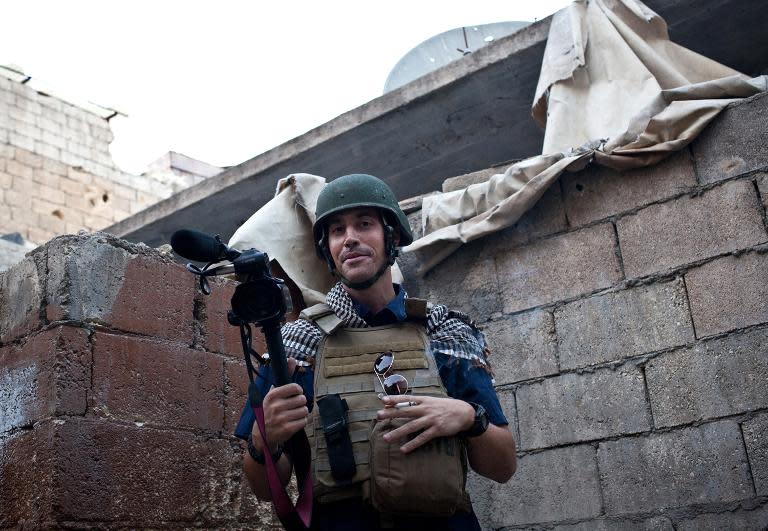UN demands action for crimes against journalists
The UN Security Council on Wednesday urged world governments to end impunity for those who silence journalists in a resolution applauded as historic by a leading media rights group. The resolution adopted unanimously by the 15-member council expresses "deep concern at the threat to the safety of journalists" from extremists such as the Islamic State. Last year, 66 journalists were killed while on assignment, and more than 90 percent of crimes against reporters go unpunished, according to Reporters Without Borders (RSF). This year, 25 journalists have lost their lives, including four cartoonists at the Charlie Hebdo satirical magazine in Paris who were gunned down by jihadists in an attack that shocked the world. The resolution "urges member-states to ensure accountability for crimes committed against journalists, media professionals and associated personnel" working in war zones. RSF secretary-general Christophe Deloire welcomed the resolution, saying "this is a historic day for the protection of journalists and we hope also for the freedom of the press." - Targeting journalists - Drafted by Lithuania and co-sponsored by 58 countries, the resolution seeks to build on a first measure passed in 2006. More than 700 journalists have been killed over the past 10 years, prompting RSF's Deloire to declare that more can be done to protect reporters. Addressing the council, Deloire called for the appointment of a special UN envoy for the protection of journalists to report on efforts by governments to prosecute those responsible for the crimes. Mariane Pearl, the widow of American journalist Daniel Pearl who was kidnapped and beheaded in Pakistan in 2002, told the council that "rhetorical commitments" to end impunity against journalists were welcome, but that action was needed. "Murder is the ultimate source of censorship, and not only in the case of Daesh," she said, referring to Islamic State. The beheadings of American journalists James Foley and Steven Sotloff, and of Japanese reporter Kenji Goto has compounded fears about the dangers faced by journalists covering the IS campaign in Syria and Iraq. Lithuanian Foreign Minister Linas Linkevicius said targeting journalists had allowed extremists like IS fighters to not only "expose their barbarity, but also to make news, to advertise themselves." RSF's Deloire urged the Security Council to refer Syria and Iraq to the International Criminal Court (ICC) to ensure that crimes against journalists are investigated. The council has been unable to launch ICC investigations in Syria because of opposition from Russia, a key Damascus ally.




